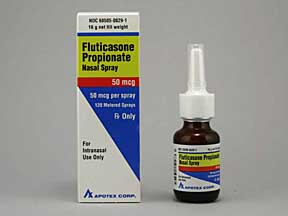
Allergy Relief Coupons & Savings Card – Discount Prices from $8.27
Brand for: Chlorpheniramine maleate
Chlorpheniramine is an antihistamine used to relieve symptoms of allergy, hay fever, and the common cold. These symptoms include rash, watery eyes, itchy eyes/nose/throat/skin, cough, runny nose, and sneezing. This medication works by blocking a certain natural substance (histamine) that your body makes during an allergic reaction. By blocking another natural substance made by your body (acetylcholine), it helps dry up some body fluids to relieve symptoms such as watery eyes and runny nose. Cough-and-cold products have not been shown to be safe or effective in children younger than 6 years. Do not use this product to treat cold symptoms in children younger than 6 years unless specifically directed by the doctor. Some products (such as long-acting tablets/capsules) are not recommended for use in children younger than 12 years. Ask your doctor or pharmacist for more details about using your product safely. These products do not cure or shorten the length of the common cold and may cause serious side effects. To decrease the risk for serious side effects, carefully follow all dosage directions. Do not use this product to make a child sleepy. Do not give other cough-and-cold medication that might contain the same or similar ingredients . Ask the doctor or pharmacist about other ways to relieve cough and cold symptoms (such as drinking enough fluids, using a humidifier or saline nose drops/spray).
Our Allergy Relief coupons are free to use. You can print the coupon, email it to yourself, or receive the Allergy Relief coupon via text message. To get your free discount, show the pharmacist your Allergy Relief savings card which has the discounted coupon price. Use our filters below to edit the prescription box to match your needs. The Allergy Relief prices will update based on your prescription needs. Above our Allergy Relief coupons, you can change the location to see pharmacy prices in other areas. Our prescription discount card will update online with the specific pharmacy costs associated with your edits. Be sure to text, email, or print the Allergy Relief savings card code that you need after editing the prescription box and location field. Show the discount card to your pharmacist before paying.
My prescription
Edit
16GM of 50MCG/ACT, Fluticasone (1 Bottle)
Select pharmacy

CVS
$21.35
COUPON PRICE
Walmart
$8.27
COUPON PRICE
Walgreens
$15.99
COUPON PRICE
Albertsons
$18.40
COUPON PRICEAllergy Relief savings card
Show this card to your pharmacist
Walmart
$8.27
BIN
ID
PCN
GRP
019876
LH054D8929
CHIPPO
LHX
Powered by
Chlorpheniramine is an antihistamine used to relieve symptoms of allergy, hay fever, and the common cold. These symptoms include rash, watery eyes, itchy eyes/nose/throat/skin, cough, runny nose, and sneezing. This medication works by blocking a certain natural substance (histamine) that your body makes during an allergic reaction. By blocking another natural substance made by your body (acetylcholine), it helps dry up some body fluids to relieve symptoms such as watery eyes and runny nose. Cough-and-cold products have not been shown to be safe or effective in children younger than 6 years. Do not use this product to treat cold symptoms in children younger than 6 years unless specifically directed by the doctor. Some products (such as long-acting tablets/capsules) are not recommended for use in children younger than 12 years. Ask your doctor or pharmacist for more details about using your product safely. These products do not cure or shorten the length of the common cold and may cause serious side effects. To decrease the risk for serious side effects, carefully follow all dosage directions. Do not use this product to make a child sleepy. Do not give other cough-and-cold medication that might contain the same or similar ingredients . Ask the doctor or pharmacist about other ways to relieve cough and cold symptoms (such as drinking enough fluids, using a humidifier or saline nose drops/spray).
Our Allergy Relief coupons are free to use. You can print the coupon, email it to yourself, or receive the Allergy Relief coupon via text message. To get your free discount, show the pharmacist your Allergy Relief savings card which has the discounted coupon price. Use our filters below to edit the prescription box to match your needs. The Allergy Relief prices will update based on your prescription needs. Above our Allergy Relief coupons, you can change the location to see pharmacy prices in other areas. Our prescription discount card will update online with the specific pharmacy costs associated with your edits. Be sure to text, email, or print the Allergy Relief savings card code that you need after editing the prescription box and location field. Show the discount card to your pharmacist before paying.
Allergy Relief FAQs
Using the SaveHealth discount card, what is the price of Allergy Relief without insurance?
Using the SaveHealth discount card, the price of Allergy Relief without insurance is $8.27.
What is the price of Allergy Relief at CVS?
The price of Allergy Relief at CVS is $21.35.
What is the price of Allergy Relief at Walgreens?
The price of Allergy Relief at Walgreens is $15.99.
What is the price of Allergy Relief at Walmart?
The price of Allergy Relief at Walmart is $8.27.
